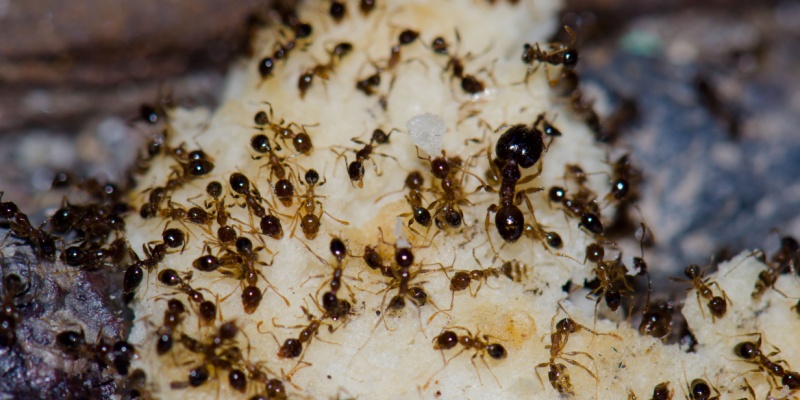Discovering ants all over your house can be alarming and frustrating. These persistent pests can quickly become a major problem if not addressed promptly. Here’s a comprehensive guide on what to do when you find yourself dealing with an ant infestation:
Immediate Actions
1. Identify the Source
- Trace the trail of ants back to their entry point to understand where they are coming from.
- Look for cracks in walls, gaps around windows and doors, or other potential entry points.
2. Clean Thoroughly
- Wipe down surfaces with soapy water or a mixture of vinegar and water to eliminate scent trails.
- Clean up any food crumbs or spills immediately, especially in the kitchen and dining areas.
3. Remove Attractants
- Store food in airtight containers and keep ripe fruit in the refrigerator.
- Ensure garbage bins are sealed tightly and emptied regularly.
Long-Term Solutions
1. Seal Entry Points
- Inspect your home thoroughly for cracks and gaps where ants might be entering.
- Use caulk or weather stripping to seal these openings effectively.
2. Use Ant Baits
- Place ant baits near trails or entry points; ants will carry the bait back to their colony, killing other members.
- Be patient, as baits can take several days to show results.
3. Natural Remedies
- Sprinkle diatomaceous earth around entry points; it’s harmless to humans but lethal to ants.
- Use essential oils like peppermint or tea tree oil diluted with water as a spray around potential entry points.
4. Outdoor Control
- Keep vegetation trimmed away from your house, as plants can provide pathways for ants.
- Remove debris, such as wood piles or leaf litter, from around your home’s foundation.
When to Call Professionals
If your efforts don’t seem to be working or if the infestation is severe:
- Expert Identification Pest control professionals can accurately identify the ant species and tailor treatments accordingly.
- Specialized Treatments Professionals have access to more potent insecticides and treatment methods that may not be available over-the-counter.
- Ongoing Monitoring Many pest control services offer follow-up visits and monitoring plans to ensure the problem doesn’t recur.
- Safety Considerations Professional exterminators know how to handle chemicals safely and effectively without posing risks to your family or pets.
Preventative Measures
To prevent future infestations:
1. Regular Cleaning
- Maintain a clean home environment by regularly sweeping floors, wiping down surfaces, and storing food properly.
2. Routine Inspections
- Periodically inspect your home for new cracks or gaps that could serve as entry points for ants.
3. Yard Maintenance
- Keep your yard tidy by removing potential nesting sites like piles of wood or leaves near your home’s foundation.
4. Moisture Control
- Fix any leaks and reduce moisture levels in your home, as many ant species are attracted to damp environments.
- Use dehumidifiers in areas prone to high humidity, such as basements and bathrooms.
Dealing with ants all over your house can be a challenging task, but by taking immediate actions like identifying the source, cleaning thoroughly, and removing attractants, you can mitigate the problem quickly. Long-term solutions such as sealing entry points, using ant baits, and employing natural remedies will help keep ants at bay. If the infestation persists or is particularly severe, don't hesitate to call in professional exterminators who can provide specialized treatments and ongoing monitoring. By maintaining cleanliness, conducting routine inspections, getting professional help, and managing moisture levels, you can prevent future ant infestations and keep your home ant-free.

